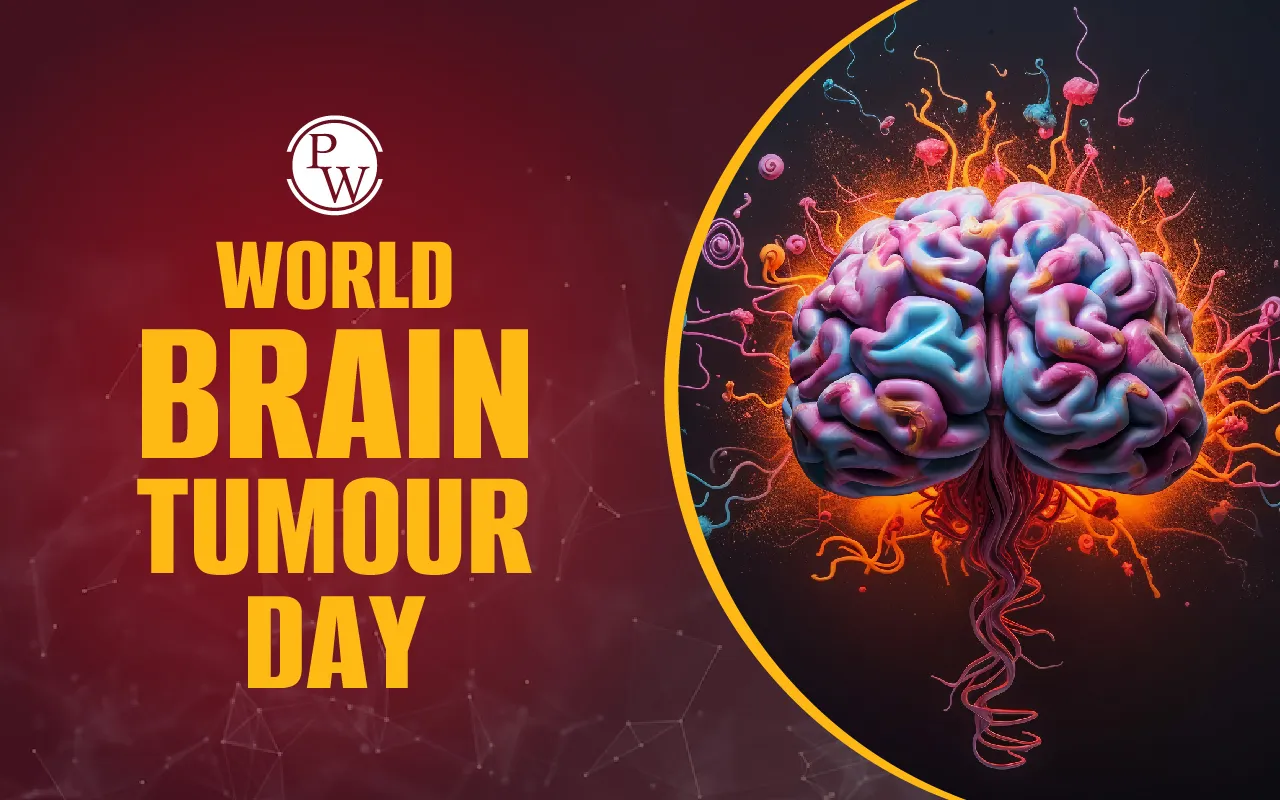
World Brain Tumour Day 2025, observed annually on June 8, is dedicated to increasing awareness about brain tumours and showing solidarity with those impacted by this serious health issue. Initiated in 2000 by the German Brain Tumour Association (Deutsche Hirntumorhilfe e.V.), World Brain Tumour Day 2025 aims to educate the public about the early signs, available treatments, and the importance of timely diagnosis.
Brain tumours can affect people of all age groups and often take a toll not only physically, but also on a person’s emotional and mental health. By raising awareness, this global initiative strives to break the stigma, encourage scientific research, and enhance the quality of care and outcomes for patients worldwide.
World Brain Tumour Day 2025 is a global health awareness day dedicated to raising understanding about brain tumours. The day encourages support for patients, promotes timely diagnosis, and urges funding for further research into treatment.
| World Brain Tumour Day 2025 Overview | |
| Date | June 8, 2025 |
| Purpose | Raise awareness about brain tumours |
| Theme | Not yet officially announced |
| Organized By | Various health organizations & patient groups |
| Activities | Awareness campaigns, educational events, fundraising, patient stories, medical talks |
| Significance | Support patients, promote research, reduce stigma |
Every year, the event focuses on a theme that highlights a key aspect of brain tumour awareness. The official theme for World Brain Tumour Day 2025 is yet to be announced by leading global health organisations. Once declared, the theme for 2025 will help guide campaigns, patient outreach, social media messages, and global events.
World Brain Tumour Day was first marked in the year 2000. It was established by the Deutsche Hirntumorhilfe (German Brain Tumour Association). Their mission was to create a dedicated day to honour patients, support caregivers, and bring the condition to public attention.
Since then, it has become a globally recognised health day, observed in hospitals, research centres, and advocacy organisations. It reminds the world that brain tumours, though less common than other cancers, need urgent attention. In developing countries, awareness is still low, making this observance even more critical.
A brain tumour is a mass or growth of abnormal cells in the brain. It can be benign (non-cancerous) or malignant (cancerous). Both types can press on surrounding tissues and affect brain function.
Brain tumours can start in the brain (primary tumours) or spread from other parts of the body (secondary or metastatic tumours). The brain controls all body functions, so even small tumours can cause serious symptoms. These symptoms include:
Persistent headaches
Vomiting or nausea
Blurred vision or double vision
Memory problems
Seizures
Difficulty speaking or walking
Early diagnosis improves treatment outcomes. Diagnosis is typically made through neurological exams and imaging tests such as MRI or CT scans, often followed by a biopsy.
Brain tumours are classified by the type of cells involved and how fast they grow. Here are some major types:
| Tumour Type | Description |
| Glioblastoma Multiforme (GBM) | A fast-growing and aggressive cancerous tumour. |
| Astrocytoma | Originates in star-shaped glial cells (astrocytes); can be slow or fast-growing. |
| Meningioma | Arises from the membranes covering the brain and spinal cord; usually benign. |
| Oligodendroglioma | Develops from oligodendrocytes; may respond well to treatment. |
| Medulloblastoma | Most common in children; occurs in the cerebellum. |
| Pituitary Adenoma | Affects the pituitary gland, influencing hormone levels and growth. |
Some tumours are treatable, while others require long-term care and follow-up. Knowing the exact type is essential for planning surgery or therapies.
The treatment of a brain tumour depends on several factors, including size, location, type, and whether it is benign or malignant. The patient’s age and general health also matter. Here are the main treatments available:
Surgery: If possible, the tumour is surgically removed. This is the first line of treatment in many cases.
Radiation Therapy: High-energy rays are used to kill tumour cells or prevent their growth.
Chemotherapy: Drugs are used to destroy tumour cells or stop them from multiplying.
Targeted Therapy: Specific molecules in cancer cells are targeted to prevent tumour growth.
Immunotherapy: A newer form of treatment that boosts the body’s immune system to fight the tumour.
Tumour Treating Fields (TTF): A newer approach that uses electric fields to disrupt cancer cell division, used for certain types of brain tumours.
In many cases, a combination of these therapies is used. Treatment decisions are made by a multidisciplinary team including neurologists, oncologists, surgeons, and therapists.
World Brain Tumour Day plays an important role in:
Spreading Awareness: Many people are unaware of the symptoms and risk factors of brain tumours. This day educates the public about what signs to look for and why early diagnosis matters.
Supporting Patients and Families: Living with a brain tumour is mentally, emotionally, and physically tough. The day creates space for patients to share experiences and find support from communities worldwide.
Encouraging Early Diagnosis: In many cases, brain tumours go undetected until they become life-threatening. The more people know, the better chances they have of seeking help in time.
Funding Research: World Brain Tumour Day reminds us of the urgent need for more research. Funding is required to find better treatments, improve surgical methods, and develop non-invasive therapies.
Promoting Global Action: Health organisations use this day to appeal to policymakers for stronger support in the healthcare sector. This includes better cancer detection centres, updated treatment infrastructure, and patient rehabilitation.
In summary, World Brain Tumour Day 2025 is a reminder of the challenges faced by those affected by brain tumours and the importance of collective efforts in combating this condition.
Explore PW’s UPSC Courses to learn more about health topics, current events, and science-based questions that are crucial for your preparation!
